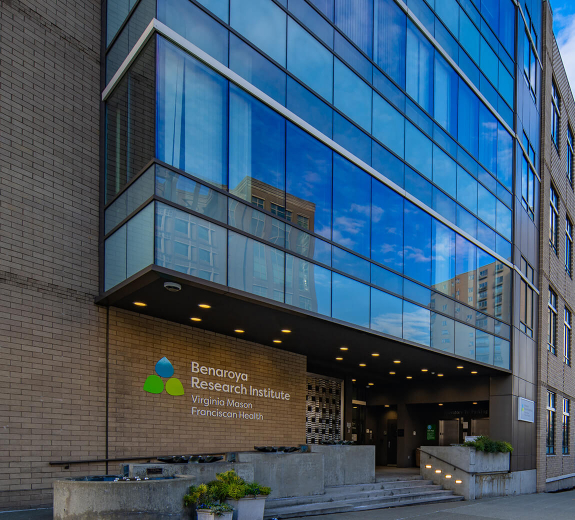BRI Tetramer Expertise to Contribute to Critical Understanding of Immune Reactions
Benaroya Research Institute at Virginia Mason (BRI) was named by the National Institutes of Health (NIH) to participate in a study that aims to increase knowledge of antibody and T-cell epitopes, which are important tools to detect, prevent and treat infectious diseases. Participants from around the world will receive nearly $73 million in grant funding to take part in the study "Large-Scale Antibody and T Cell Epitope Discovery Program", sponsored by the National Institute of Allergy and Infectious Diseases (NIAID), part of the NIH. BRI, known for scientific discoveries into the causes of genetic and autoimmune diseases, as well as the discovery and production of tetramers, will focus on T cell epitopes of influenza viruses as well as anthrax and tetanus bacteria.
"This discovery program is an exciting opportunity to work in concert with our research peers to accelerate the understanding of how the immune system works in relation to such infectious disease as influenza, tetanus, anthrax and other challenges of our time. At BRI we are committed to translating the scientific knowledge from our research labs to applications in the clinic and to the wider public. Recognition by the National Institutes of Health and inclusion in this study is due to BRI’s expertise in the discovery and application of tetramers as well as genetic and autoimmune research," said Gerald Nepom, M.D., Director of BRI, "With tetramers, we hope to speed development of technologies to determine if a therapy is working."
BRI is an international center for the production and use of tetramers — engineered molecules that can monitor patients’ immune systems and pinpoint their response to treatment. Tetramers are the best way to directly count a type of immune cell that is important in protection from infection and in autoimmune diseases.
"Our work with tetramers informs us whether a therapy against a disease is working by monitoring immune response. If we could unlock better means to fight influenza, anthrax and tetanus bacteria — these would be great achievements. This is our goal and we’re focused on contributing to new avenues to block infectious disease progression." commented William Kwok, Ph.D., director of the Tetramer Core Laboratory and principal investigator from BRI on this study.
BRI will receive $3.5 million in support from NIH for this program. "This project will expand the use of tetramers by BRI, which has several other ongoing projects using tetramers to monitor patients with type 1 diabetes and other forms of autoimmunity during clinical trials of new therapies.



